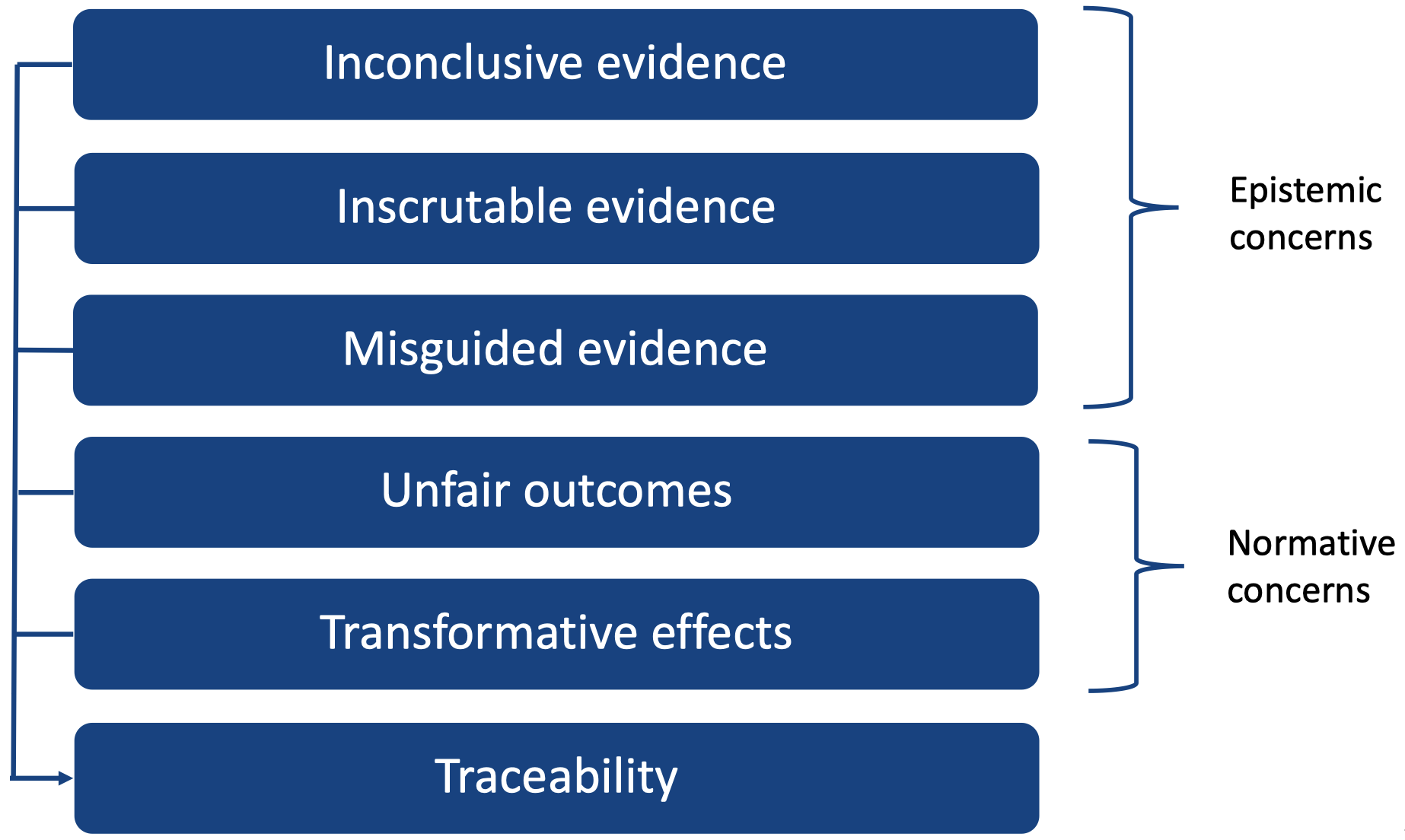Module 00 概览
1. 六种伦理问题

- Inconclusive evidence (不确定的证据)
- 起因:
- Incomplete data sets (不完整的数据集)
- Data sets with structural inequalities (存在结构性不平等的数据集)
- 影响:
- Erroneous actionable insights (错误的可操作见解)
- 起因:
- Inscrutable evidence (难以理解的证据)
- 起因:
- Lack of appropriate tools for transparency (缺乏适当的透明度工具)
- Cognitive impossibility of interpretation (解释的认知不可能)
- 影响:
- Erroneous actionable insights (错误的可操作见解)
- Shirk responsbility (推卸责任)
- 起因:
- Misguided evidence (被误导的证据)
- 起因:
- Use of unsuitable features/variables (使用不合适的特征/变量)
- Use of model in different context (在不同的上下文中使用模型)
- 影响:
- Biased algorithms (带偏见的算法)
- 起因:
- Unfair outcomes (不公平的结果)
- 起因:
- Inconclusive or misguided evidence (不确定或误导的证据)
- 缓解方法:
- Third-party auditing (第三方审核)
- Collaborative community-based design (基于社区的协作设计)
- 起因:
- Transformative effects (变革效应)
- 起因:
- Users’ limited understanding of algorithms (用户对算法的理解有限)
- Choices constrained by algorithms (受算法约束的选择)
- Insufficient recourse (追索权不足)
- 影响:
- Reduction in human autonomy (减少人类自主权)
- 起因:
- Traceability (可追溯性)
- 起因:
- Lack of transparency, explainability, and accountability (缺乏透明度、可解释性和问责制)
- 影响:
- Lack of moral responsbility (缺乏道德责任感)
- “Agency laundering” (“机构洗钱”)
- 起因:
2. 推荐阅读
本作品采用知识共享署名-非商业性使用-相同方式共享 4.0 国际许可协议进行许可。 欢迎转载,并请注明来自:YEY 的博客 同时保持文章内容的完整和以上声明信息!